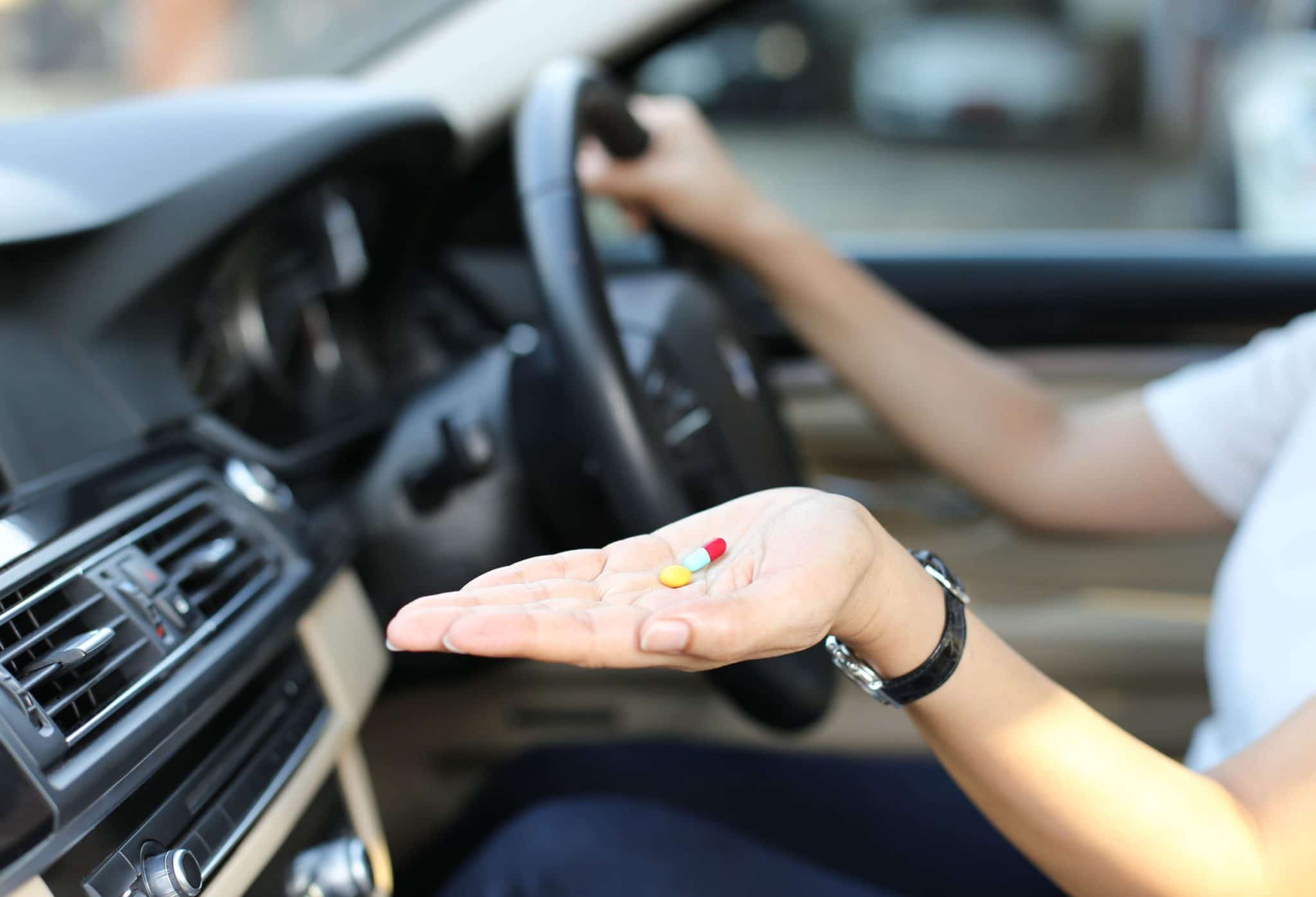Driving under the influence of a controlled substance is one of those charges that can catch people off guard—especially those who assume DUI laws only apply to alcohol. Whether it’s a prescription medication, marijuana, or an illegal drug, operating a vehicle under the influence of any controlled substance can lead to serious criminal accusations. But here’s the good news: just because you’re charged doesn’t mean you’re guilty. With the right legal strategy, it’s absolutely possible to mount a strong defense.
In this article, we’ll unpack the top strategies for defending against driving under the influence of a controlled substance accusations. We’ll look at how these cases are built, where the weaknesses often lie, and how real people have fought back. You’ll also learn how to protect your rights and understand the legal system from a practical, not just theoretical, standpoint.

Why Controlled Substance DUI Charges Are Different
Most people think of DUI as alcohol-related. But when you’re charged with driving under the influence of a controlled substance, the legal landscape shifts. Unlike alcohol, where there’s a clear legal limit (usually 0.08% BAC), drug-related DUIs rely on different evidence: chemical tests, officer observations, and sometimes subjective interpretations of behavior.
And that’s where it gets tricky.
Let’s say you took your prescribed pain medication—hydrocodone, for instance—and drove to work. If an officer pulls you over for a minor traffic violation and suspects impairment, you could be arrested and charged, even if you took your medication as directed. This makes driving under the influence of a controlled substance a legal gray area—and one where prosecutors often overreach.
Real-Life Story: Chris and the Cold Medicine Confusion
Chris, a 42-year-old electrician, was pulled over for drifting across a lane line. He’d been battling a sinus infection and had taken an over-the-counter cold medicine that morning. The officer noticed his red eyes and slightly slurred speech, then arrested him for driving under the influence of a controlled substance.
Chris was floored. He hadn’t used illegal drugs. He hadn’t been drinking. But the officer believed he was impaired. At the station, Chris submitted to a urine test, which came back positive for pseudoephedrine—a legal component of many cold medications.
His attorney argued that the state couldn’t prove impairment. The drug was legally obtained, the dosage was appropriate, and there was no proof that it affected Chris’s ability to drive safely. Eventually, the charge was dropped due to insufficient evidence.
That’s one example of why defending against driving under the influence of a controlled substance accusations requires more than just showing you had a prescription or took a legal substance. You need to prove it didn’t impair your driving.
Understanding the Legal Elements of the Charge
To successfully fight back, you must first understand what the prosecution must prove. In a driving under the influence of a controlled substance case, they typically need to show:
- You were operating or in control of a vehicle
- You had a controlled substance in your system
- The substance impaired your ability to operate the vehicle safely
This third point—impairment—is often the weakest link. Simply having a drug in your system isn’t enough. The prosecution must show it affected your driving. That’s where your defense begins.

Strategy 1: Challenge the Traffic Stop
Many cases involving driving under the influence of a controlled substance start with a traffic stop. But was the stop legal?
Police must have reasonable suspicion to stop you—like speeding, swerving, or running a stop sign. If your lawyer can prove the stop was unjustified, everything that followed—the arrest, the test results—could be thrown out.
Imagine this: an officer pulls you over just because they think you “look tired” or because it’s late at night and you’re driving in a high-crime area. That’s not enough. If the stop wasn’t legal, your case may not stand.
Strategy 2: Question the Officer’s Observations
Most controlled substance DUI arrests rely on what the officer says they saw: slurred speech, glassy eyes, nervous behavior. But these observations can be highly subjective and often influenced by bias.
Were you tired after a long shift? Do you suffer from allergies or anxiety? Did you simply get nervous when talking to police?
All of these conditions can mimic drug impairment. A skilled attorney will bring this up in court to cast doubt on the officer’s interpretation. And remember, without strong evidence of actual impairment, driving under the influence of a controlled substance charges may not hold up.
Strategy 3: Attack the Chemical Test Results
Unlike alcohol testing, drug testing isn’t cut and dry. A breathalyzer can give immediate BAC results, but for drugs, the process is more complex—and more prone to error.
Urine tests, for example, can show substances days or even weeks after use, long after any impairing effects are gone. Blood tests are more precise, but they’re not always available or used properly.
Your defense attorney may ask:
- Was the sample collected correctly?
- Was the testing equipment maintained and calibrated?
- Was there a proper chain of custody?
- Did the test measure active impairment or just presence?
If any of these questions raise concerns, your lawyer may move to suppress the results—making it harder for prosecutors to prove their case.
Strategy 4: Present Medical Explanations
Sometimes, medical conditions can mimic signs of impairment. Diabetes, neurological disorders, fatigue, or even dehydration can lead to slurred speech, poor balance, and confusion.
If you have a legitimate medical condition that contributed to your behavior during the stop, your lawyer can use that to your advantage. Courts must consider all relevant factors, especially if your condition was well-managed and not the result of substance abuse.
In other words, driving under the influence of a controlled substance accusations shouldn’t overlook your medical reality. Your defense must tell the full story.
Strategy 5: Use Expert Witnesses
When your case gets technical, expert testimony can tip the scale. A toxicologist might explain how the drug in your system didn’t cause impairment at the level detected. A medical professional might testify about your condition and how it explains your symptoms. These professionals bring objective, scientific perspectives that can neutralize the prosecution’s claims.
Expert witnesses add credibility. They help judges and juries understand complex scientific points that otherwise might go misunderstood or ignored. Their detailed explanations often highlight the flaws in how law enforcement interprets drug effects.
In many successful defenses, expert testimony plays a crucial role in casting reasonable doubt. By illustrating how drug presence does not always equal impairment, they can significantly undermine the state’s narrative.

Strategy 6: Argue Lack of Impairment
Ultimately, the prosecution must show that the substance in your system affected your ability to drive. But many drugs—even prescription ones—don’t automatically impair your judgment or motor skills.
Let’s say you’re prescribed a controlled substance like Xanax or Adderall. You’ve been using it responsibly for months. You know how your body reacts, and it doesn’t impair your daily functions.
If the state can’t prove that the drug impaired your driving, they don’t have a case. Your attorney will argue that responsible, prescribed use isn’t the same as being “under the influence.”
This is one of the most powerful arguments when defending against driving under the influence of a controlled substance accusations.
Strategy 7: Examine Video or Bodycam Evidence
With bodycams and dashcams becoming more common, your defense attorney should request all available footage. Often, the video tells a different story than the arrest report.
The officer might write that you were “staggering” or “unable to follow instructions,” but the video may show you standing steadily or complying calmly.
If the footage contradicts the official narrative, it’s a powerful tool for your defense. It’s not about proving perfection—just about showing that the state can’t prove impairment beyond a reasonable doubt.
Strategy 8: Consider Suppression Motions
Your lawyer might file a motion to suppress evidence obtained illegally. This could involve an unlawful search, an invalid warrant, or improper questioning after you invoked your right to remain silent. These motions are rooted in your constitutional rights and can become a game-changer if filed properly and at the right time.
If the court grants the motion, the evidence in question gets excluded from trial. And if that evidence is central to the prosecution’s case, the charges may be reduced—or dropped entirely. Without that key piece of evidence, the prosecution may be left without enough to proceed, forcing them to reconsider their case.
In cases involving driving under the influence of a controlled substance, smart use of suppression motions often shapes the outcome. The defense’s ability to identify procedural flaws can shift the burden back onto the state and open the door to negotiation or outright dismissal.

Final Thoughts: Fighting Back with Confidence
When you’re charged with driving under the influence of a controlled substance, it’s easy to feel overwhelmed. The legal language is intimidating. The consequences are serious. But here’s the truth: you’re not helpless.
With the right defense strategy—grounded in evidence, legal knowledge, and a deep understanding of how these cases work—you can challenge the accusations effectively. You can assert your rights. And in many cases, you can walk away with your future intact.


